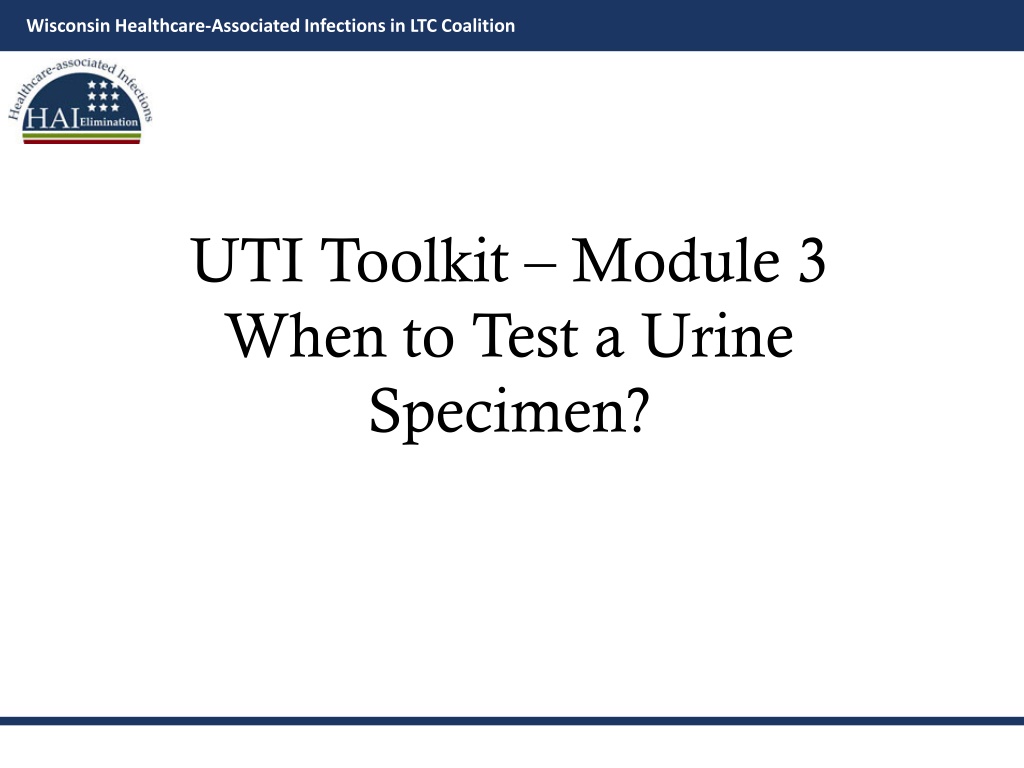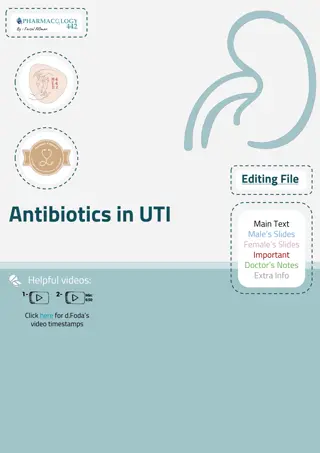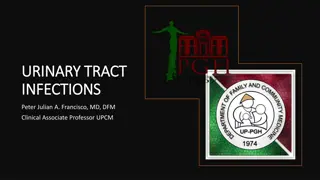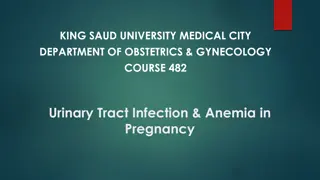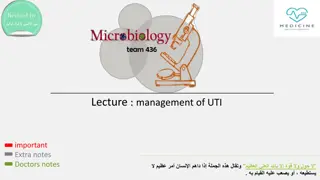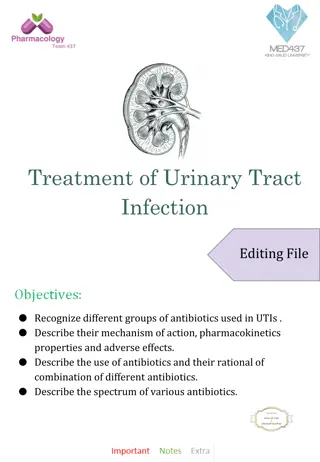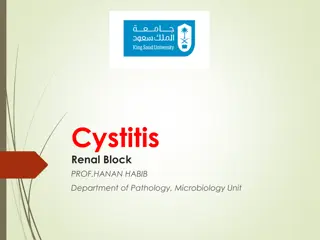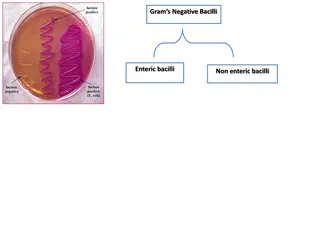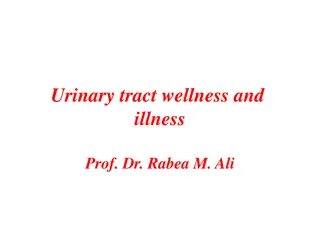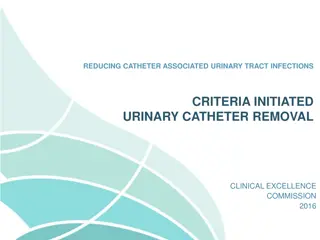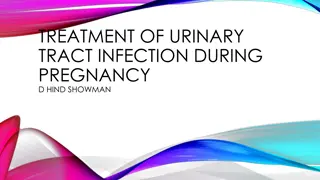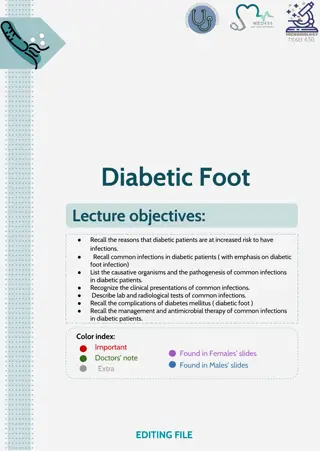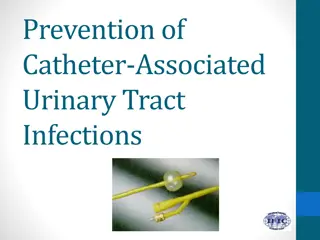Understanding Urinary Tract Infections (UTIs) in Long-Term Care Settings
Urinary tract infections (UTIs) in long-term care facilities present challenges due to non-specific symptoms in residents. This module explores the signs, symptoms, and testing guidelines for UTIs, emphasizing the importance of recognizing and addressing UTIs in non-communicative residents. Learn about the specific indicators and considerations for diagnosing UTIs in elderly populations.
Download Presentation

Please find below an Image/Link to download the presentation.
The content on the website is provided AS IS for your information and personal use only. It may not be sold, licensed, or shared on other websites without obtaining consent from the author. Download presentation by click this link. If you encounter any issues during the download, it is possible that the publisher has removed the file from their server.
E N D
Presentation Transcript
Wisconsin Healthcare-Associated Infections in LTC Coalition UTI Toolkit Module 3 When to Test a Urine Specimen?
Wisconsin Healthcare-Associated Infections in LTC Coalition UTI Toolkit Module 3 Narration by: Anna Eslinger, RN Infection Preventionist Marshfield Medical Center - Eau Claire Content developed in partnership with the Wisconsin Healthcare-Associated Infections in Long-Term Care Coalition Funding for this project was provided by the Wisconsin Partnership Program at the UW School of Medicine and Public Health
Wisconsin Healthcare-Associated Infections in LTC Coalition What is a Urinary Tract Infection (UTI)? There is no gold standard definition of UTI, but several consensus definitions have been suggested and revised over time1,2 These definitions differ slightly, but all require the presence of signs and symptoms localizing to the urinary tract 1 Loeb et al. ICHE 2001; 22(2): 120-4 2 Stone et.al. ICHE 2012; 33(10): 965-77
Wisconsin Healthcare-Associated Infections in LTC Coalition Signs and Symptoms Specific for UTI Dysuria New onset o Frequency o Urgency o Incontinence Flank pain or tenderness Suprapubic pain Gross hematuria Focal tenderness or swelling of testis, epididymis or prostate Recent catheter trauma, obstruction, or purulent drainage around the catheter Nace, et.al. JAMDA 2014; 15(2): 133-39
Wisconsin Healthcare-Associated Infections in LTC Coalition What about Non-Communicative Residents? Residents frequently have non-specific geriatric symptoms and are unable to tell us what is bothering them Non-specific symptoms include: o Functional decline o Changes in mental status o Altered behaviors o Falls Unfortunately, these symptoms are non-specific and often triggered by other (for example, non-infectious) causes Nace, et.al. JAMDA 2014; 15(2): 133-39
Wisconsin Healthcare-Associated Infections in LTC Coalition Are Changes in Mental Status, Behavior, or a Fall Symptoms of a UTI? Sometimes, but most commonly NOT UTI is less likely without specific urinary symptoms Non-specific geriatric symptoms, such as change in mental status, fatigue, or a fall may be due to a variety of non- infectious causes including: Medications (e.g., opiates) Sleep deprivation Low oxygen (CHF, COPD) Dehydration Hypoglycemia High carbon dioxide (COPD) Pain Electrolyte imbalance Stroke Constipation Depression Seizure
Wisconsin Healthcare-Associated Infections in LTC Coalition In other words Don t think testing urine first in a resident with a change in condition and no localizing urinary tract signs and symptoms
Wisconsin Healthcare-Associated Infections in LTC Coalition Non-specific Geriatric Symptoms May Accompany a UTI but Without another localizing urinary symptom or fever or leukocytosis and no other identified source of infection, these non-specific symptoms are unlikely a sign of UTI AND A urine specimen should NOT be sent Drinka P. JAMDA 2009; 10(8): 516-19
Wisconsin Healthcare-Associated Infections in LTC Coalition What about Non-Communicative Residents? A patient with advanced dementia may be unable to report urinary symptoms. In this situation, it is reasonable to obtain a urine culture if there are signs of systemic infection such as fever (increase in temperature of equal to or greater than 2 F [1.1 C] from baseline) leukocytosis, or a left shift or chills in the absence of additional symptoms (e.g., new cough) to suggest an alternative source of infection. * *AMDA Choosing Wisely Campaign (See Item 3, https://paltc.org/choosing-wisely)
Wisconsin Healthcare-Associated Infections in LTC Coalition Change in the Character of the Urine UTI Dark, concentrated and/or strong smelling urine can be caused by several factors, including dehydration, diet, medication, or the presence of specific bacteria Changes in the character of the urine WITHOUT specific urinary symptoms do not indicate the presence of UTI Without specific urinary tract signs and symptoms, DO NOTTEST
Wisconsin Healthcare-Associated Infections in LTC Coalition Bacteria in the Urine UTI The skin surface is not sterile The mouth is not sterile The colon is not sterile And in many nursing home residents the bladder is not sterile Up to 50% of LTC residents have bacteria in their urine without any signs of infection* * Massachusetts Coalition for Patient Safety
Wisconsin Healthcare-Associated Infections in LTC Coalition When Symptoms are Absent: Positive urine dip is meaningless Positive urinalysis is meaningless Positive urine culture is just Asymptomatic Bacteriuria Regardless of symptoms: Poor urine collection technique causes false-positive urinalysis See Module 2 for how to collect urine properly
Wisconsin Healthcare-Associated Infections in LTC Coalition Positive Urine Culture Without Localizing Urinary Tract Symptoms DO NOT TREAT
